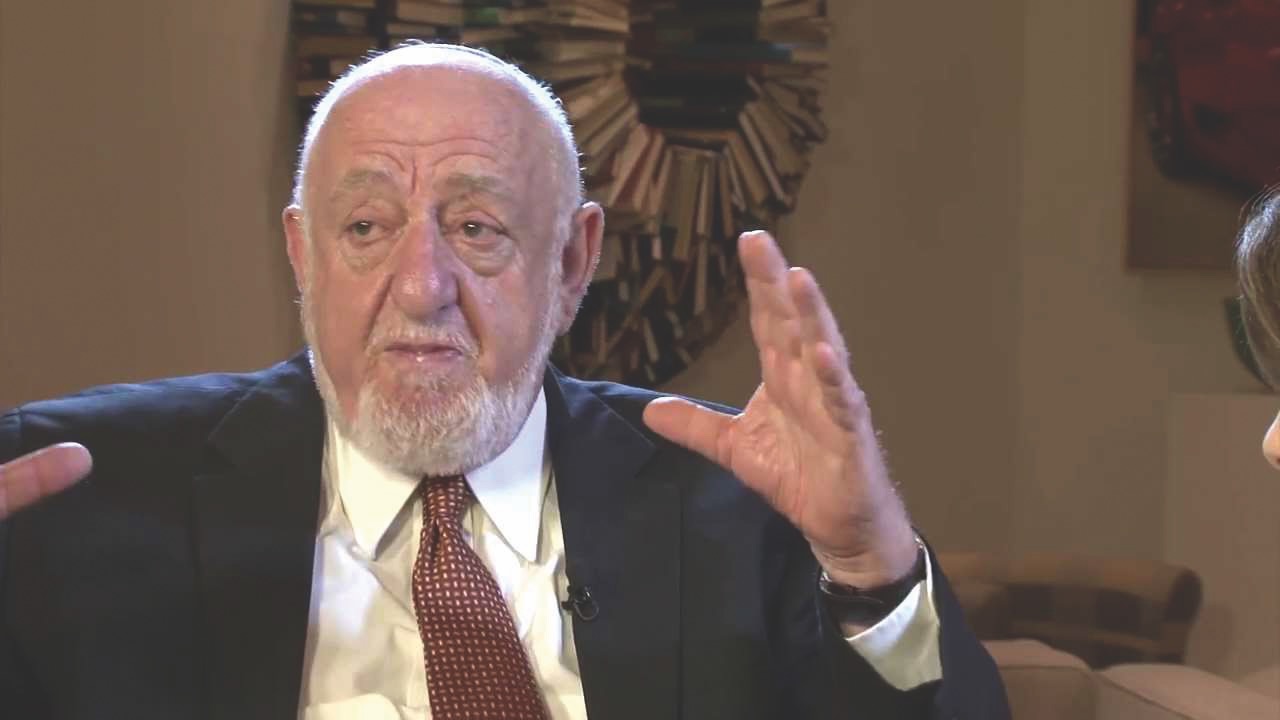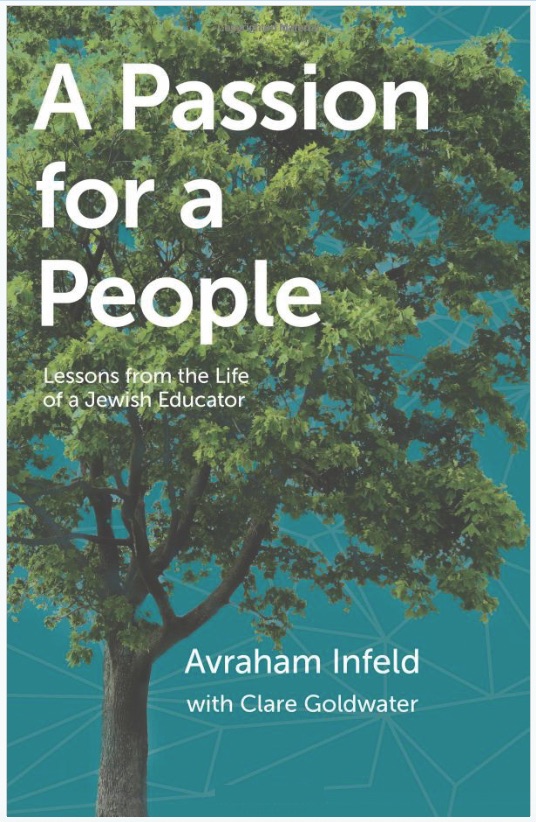 Avraham Infeld.
Avraham Infeld. A story is told of a visitor to The Hebrew University of Jerusalem who is taken on a tour of the buildings named after famous Jewish writers. But the name on one building is unfamiliar to the visitor.
“What did he write?” asks the visitor, to which the guide answers: “A check.”
I was reminded of this story in the opening pages of “A Passion for a People: Lessons From the Life of a Jewish Educator” by Avraham Infeld with Clare Goldwater (YouCaxton Publications). It’s the memoir of a man who has written his name into our history — not with a book, not with a check, but with his life’s work, both in Israel and throughout the Diaspora.
Over the years, he has served as president of Hillel International, CEO of the Melitz Center for Jewish Zionist Education, director of English-speaking youth programs for the Jewish Agency and planning director of Birthright Israel, among other posts.
“I am a builder — not of buildings but families,” Infeld explains. “I start with my own family … [a]nd then I expanded my perspective, yielding to the eternal pull that I feel toward the extended Jewish family to those I don’t know personally but love anyway and to the relatives across time and space that Jewish history has bequeathed me.”
Born in South Africa in the 1950s, Infeld was raised in what he calls a “secular, ethnic, Zionist form of Judaism,” and only later found his way into observant Judaism.
“For our family, Shavuot was an agricultural festival that had been revitalized by the Zionist movement,” he recalls. “I had no idea that Jews around the world celebrate Shavuot as the day on which the Torah was given.”
Even so, he insists that describing Judaism as a religion “is a distortion of what we are.” He says: “One cannot practice the Jewish religion without a sense of belonging to the People.”
His devoted work for a diverse and distinguished list of Jewish communal organizations was in service of the overriding goal of reminding Jews that they belonged to a people rather than a faith. According to Gideon Shimoni, a professor at Hebrew University, “peoplehood” is “a concept which became the hallmark of his famed educational enterprise.

Intriguingly, he does not identify anti-Semitism as the greatest challenge to the integrity and vigor of the Jewish people. Rather, he reaches back to the Emancipation of the 19th century, which enabled Jews to escape the ghetto and enter the secular world, an event that shattered the Jewish people into what he calls “subtribes,” including “the Zionist, the Haredi, the assimilated Jew, and the denominational Jew — each with its own definition of what it means to be a Jew.”
Yet he regards the diversity of Judaism as the source of its richness, strength and vitality, if not also some of its greatest challenges.
A book about the Jewish religion that even a wholly non-observant Jew will find endearing and enriching.
“[M]y understanding of being Jewish today has been continually enriched by the multiplicity of modern Jewish identities that I have encountered. … And the assumption behind it is very important — namely, there cannot be a single way or truth for what it means to be Jewish, there are only multiple perspectives on the same truth,” he said.
Early in his career, Infeld spent time at what is now the Brandeis-Bardin Campus of American Jewish University in Simi Valley, and he singles out its founder, Shlomo Bardin, as one of his teachers and mentors. But Infeld also confesses that America causes him to feel both “love and fear” precisely because “you can be Jewish and American at the same time.”
The reason for his trepidation is found in the fact that Judaism is regarded as a religion in America: “[If] Judaism is a religion, like Christianity, then there is no national identity to express and no contradiction between being American and being Jewish.”
Exactly here we find the cutting edge of Infeld’s candor. Since the United States and Israel, at least during the pioneering era of secular Zionism, sought to achieve “freedom from religion,” the goal of both countries seemed to provide “an ability to be Jewish without religion.”
For Infeld, then, we must recognize our membership in the Jewish people before (and whether or not) we participate in the religious practices of Judaism.
“After all, a religion is understood as the truth of all truths, and religions want others to accept those truths,” he explains. “If we had that approach, we would actively look for those non-Jews who wanted to try on tefilin and perform other mitzvot. … But we are not a religion, we are a people, and our rituals and values apply only to those who are members of our People.”
Infeld sums up his own prescription for the health of the Jewish people with the metaphor of “the five-legged table,” that is, “Memory, family, Mount Sinai, Israel and Hebrew.” Notably, only one leg of the table is explicitly religious: “Mount Sinai signifies the earliest recognition of a transcendent power and the ensuing realization that if there is already a God, then human beings are not God,” he writes. “From here we learn the values and rituals that are our particular inheritance and that govern our behaviors, our role in the world, and our contribution to humanity.”
Even when it comes to the miraculous account of Mount Sinai that we find in the Torah, Infeld keeps an open mind: “Whether or not it really happened, this event changed us forever.”
“A Passion for a People” is a book about the Jewish religion that even a wholly non-observant Jew will find endearing and enriching. It is beautifully written, full of resonant stories and recollections, gentle instruction and both courage and candor. “I live in perpetual tension between my universal and particular tendencies,” he writes. “I am both Avraham Infeld the Jew and Avraham Infeld the human being.”
And so, Infeld has given us a book that is intended to open both doors and
conversations.
Jonathan Kirsch, author and publishing attorney, is the book editor of the Jewish Journal.























 More news and opinions than at a Shabbat dinner, right in your inbox.
More news and opinions than at a Shabbat dinner, right in your inbox.